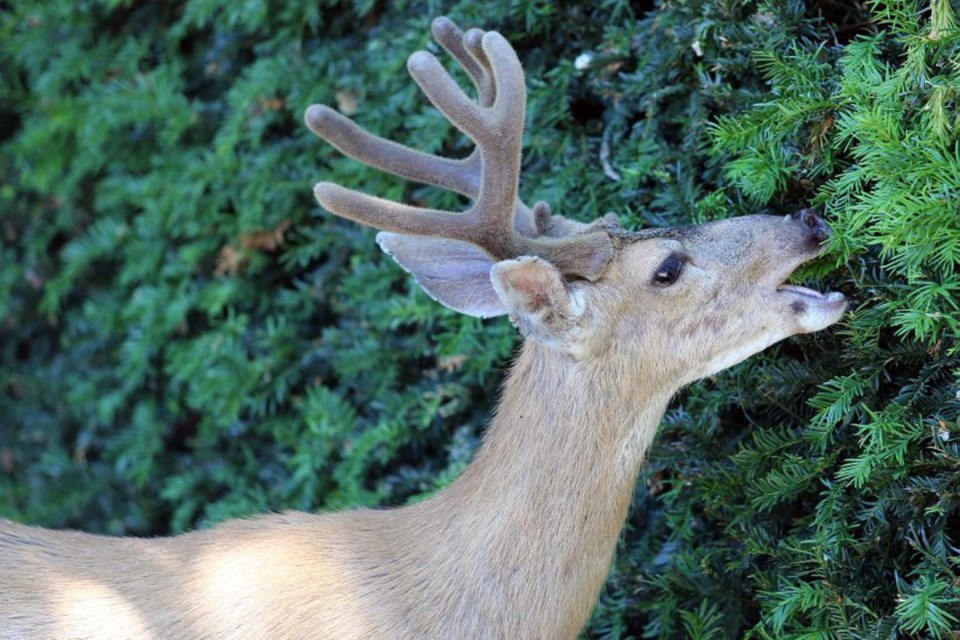Oak Bay is considering hiring an independent firm to survey residents about their awareness of and attitudes toward urban deer.
“That will certainly assist us in understanding the way forward,” Mayor Nils Jensen said.
“There’s always the question of what do our residents really want?Some people say they don’t want you to cull. Others say please go ahead and cull. Some were saying only use, not sterilization, but contraceptive immunization.”
The decision has disappointed the Urban Wildlife Stewardship Society, which wanted the municipality to partner with it on a program that would have included public education, a deer count and a values-based survey. Oak Bay councillors rejected that call to contract with UWSS, which would have cost $17,250.
Kristy Kilpatrick, UWSS vice-president, said she was extremely disappointed by council’s decision. She said UWSS is “a really solid group” that includes experts from both the University of Victoria and Camosun College.
“I think the mayor and some of the council seem concerned with our credentials and that we might be perceived to be biased, but I think it’s really important to note that we’ve always said that we are a science-based, non-lethal deer-management group. That’s our objective,” Kilpatrick said.
Jensen said council felt a resident survey was better conducted “at arm’s length” than by an advocacy group like UWSS, which is forthright in admitting there are no circumstance under which it would support a deer cull.
“They really are an anti-cull advocacy group. Certainly, I felt, and I think there were others that felt, if you’re going to do a survey that has credibility, it needs to be done by an independent agency, not one that’s already leaning in one particular policy direction,” Jensen said.
Council asked staff to provide a high-level cost estimate to conduct an attitudinal survey of residents on urban deer.
Councillors also have accepted the municipality has a role to play in urban-deer management in partnership with the provincial government. “I think that was an important step forward, that we are going to deal with it once we decide on what program we want to proceed with and ensure it’s in partnership with the province,” Jensen said. “We had the option of saying we’re just not going to do anything.”
Jensen said if it is decided the number of deer in Oak Bay has to be reduced, there are only three methods: a cull, contraceptive immunization or sterilization, and relocation.
In 2015, Oak Bay conducted a cull of deer over a 16-day period but only 11 deer were trapped and killed.
Prior to the last cull, Oak Bay examined options, but was told by the province culling was the only viable and feasible method, Jensen said. At the time, no contraceptive serum was available.
Since then, the province has been involved in a pilot deer-translocation trial in the East Kootenays.
Kilpatrick said she doesn’t understand why Oak Bay doesn’t at least try the contraceptive/ immunization option before looking at anything else.
“There doesn’t seem to be much point in needlessly going out and killing deer. The literature and the experience really does seem to demonstrate that it’s not effective,” she said.



